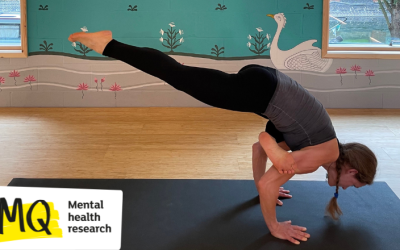April is Stress Awareness Month, a time to raise awareness about the impact of stress on our mental and physical health. Stress is a natural response to challenging situations, but when stress becomes chronic or overwhelming, it can have serious consequences for our wellbeing. So let’s gently, in a relaxed way, explore the importance of stress awareness and provide tips for managing stress in healthy ways. No stress.
How to recognise stress
One of the biggest challenges of stress is that it can be difficult to recognise when we're experiencing it. Many of us have become so accustomed to high levels of stress that we don't even realise when it's taking a toll on our mental and physical health. This is why stress awareness is so important. By learning to recognise the signs and symptoms of stress, we can take steps to manage it before it becomes a serious problem.
Some common signs of stress include:
- Feelings of overwhelm or inability to cope
- Physical symptoms such as headaches, muscle tension, or stomach upset
- Increased anxiety or irritability
- Trouble sleeping or feeling tired all the time
- Changes in appetite or eating habits
If you're experiencing any of these symptoms, it's important to take steps to manage your stress as it could affect your health both mentally and physically.
How to reduce stress
There are many healthy ways to manage stress. Here are some tips to help you get started:
- Practice self-care: Self-care activities like exercise, meditation, or spending time in nature can help reduce stress and improve your overall wellbeing.
- Prioritise sleep: Getting enough sleep is crucial for managing stress. Aim for at least seven to eight hours of sleep each night, and establish a bedtime routine to help you unwind before sleep.
- Connect with others: Social support can help reduce stress and improve our resilience. Make time to connect with friends and family, or consider joining a support group or therapy.
- Manage your workload: If you're feeling overwhelmed at work, talk to your supervisor about ways to manage your workload or delegate tasks to others.
- Limit screen time: Spending too much time on social media or watching TV can increase stress levels. Try to limit your screen time and spend more time engaging in activities you enjoy.
Why is Stress Awareness Month so Important?
Stress Awareness Month is also an opportunity to raise awareness about the impact of stress on our society. Chronic stress has been linked to a range of health problems, including heart disease, diabetes, and mental health conditions like depression and anxiety. It's important for employers, policymakers, and healthcare providers to recognize the impact of stress on our communities and take steps to address it.
Stress Awareness Month is an opportunity to raise awareness about the impact of stress on our mental and physical health. By learning to recognise the signs and symptoms of stress and taking steps to manage it in healthy ways, we can improve our overall wellbeing and prevent the negative consequences of chronic stress which can include development of mental illness.
So, whether it's through self-care activities, seeking professional help, or advocating for systemic change, there are many ways we can work together to reduce the impact of stress on ourselves and our communities.



